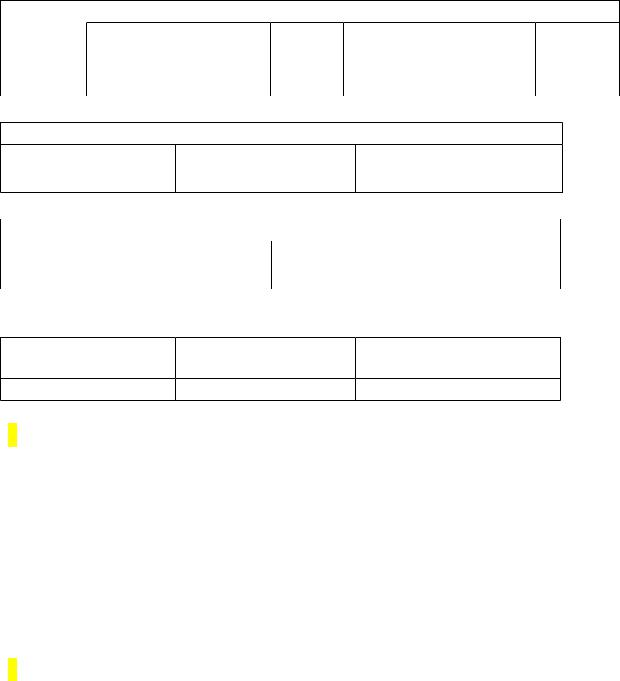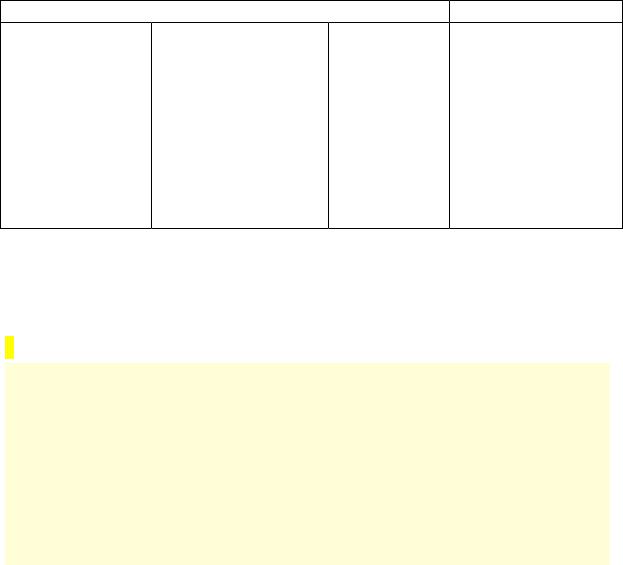
Навч_Пос_бник_Лазарева_Ковтун
.pdf
anybody = anyone – хтось (у питальних та негативних реченнях); хтозавгодно (в стверджувальних реченнях);
anywhere – десь (у питальних та негативних реченнях); де-завгодно (в стверджувальних реченнях);
nothing – ніщо, нічого; nobody = no one – ніхто; nowhere – ніде.
Вправа 9. Заповніть пропуски займенниками some, any, no або їх похідними.
1. There were ___ of my friends there. 2. Well, anyway, there is ___ need to hurry, now that we have missed the train. 3. Have you ever seen ___ of these pictures before? 4. There is ___ water in the kettle: they have drunk it all. 5. We could not buy cherries, so we bought ___ plums instead. 6. Can I have ___ milk?
— Yes, you can have ___. 7. Have you bought ___ cheese? 8. Give me ___
books, please. I have ___ to read at home. 9. Put ___ sugar in her tea: she does not like sweet tea. 10. Is ___ the matter with you? Has ___ offended you? I see by your face that ___ has happened. 11. We did not see ___ in the hall. 12. ___
was present at the lesson yesterday. 13. He is busy. He has ___ time to go to the cinema with us. 14. Do you need ___ books to prepare for your report? 15. Do you have ___ questions? Ask me ___ you like, I will try to answer ___ of them. 16. ___ liked that play: it was very dull.
5.5. Домашнє завдання
Вправа 10. Перефразуйте речення відповідно до зразків. Model 1. This is my coat. – This coat is mine.
1. This is our university. 2. This is my note-book. 3. This is your desk. 4. This is his bicycle. 5. This is her bag. 6. This is their classroom. 7. This is our tram. 8. This is her idea.
Model 2. Your room is large. Jane’s room is larger. – Jane’s room is larger than yours.
1. My watch is good. Your watch is better. 2. My pen is bad. His pen is worse. 3. Their house is old. Our house is older. 4. His camera is dear. Nick’s camera is
41
dearer. 5. Her story is interesting. Her friend’s story is more interesting. 6. Our teacher is young. Your teacher is younger.
Вправа 11. Доповніть речення зворотними займенникам.
Model. I’ve repaired my TV set. – I’ve repaired my TV set myself.
1. I’ll go to the post-office ___. 2. She cooks breakfast ___. 3. We’ll water the flowers ___. 4. The soldiers built the bridge ___. 5. Mother said to the boy, “You must always make the bed ___.” 6. If I were you, I would go there ___. 7. The chief engineer went to the conference ___.
Вправа 12. Замініть українські слова словами many, much, few, little, a few, a little.
1. There is (мало) meat in the soup. 2. I do not eat (багато) bread. 3. I have (небагато) money. 4. There is (мало) salt in the salad. 5. There is not (багато) fish on the table. 6. There is (мало) ink in the ink-stand. 7. There is not (багато) air in the room. 8. Are there (багато) cups on the table? 9. We do not eat (багато) meat at supper. 10. Is there (багато) coffee in the cup? 11. There are (небагато) things in my back-pack. 12. He has not (багато) friends. He has only (декілька).
Вправа 13. Заповніть пропуски займенниками some, any, no або їх похідними. Перекладіть рідною мовою.
1. Virtual visitors of the exhibition can navigate through different booths ___
time of the day. 2. Fear of having a bad time is enough to make ___ people stay at home. 3. At the party John didn’t recognize ___. 4. Chimpanzees know when
___ else’s thinking is wrong. 5. ___ who can ride a bicycle can understand how it works. 6. Are there ___ letters for me? 7. If ___ is done to check the problem, one in three adults will be obese by 2020. 8. You look worried. Has ___
happened? 9. Bicycles generate ___ air or noise pollution and do not require huge paved roads. 10. Would you like ___ milk to your coffee? 11. I haven’t got
___ money at the moment. Would you lend me ___? 12. Let’s go ___ for dinner this evening.
Вправа 14. Складіть розповідь про своє студентське життя, використовуючи активні слова та словосполучення.
42
Lesson 6. Hobby 6.1. Усна тема. Моє хобі
Знайдіть у словнику підкреслені слова та словосполучення і прочитайте текст.
MY HOBBY
Hobby is a person’s favourite occupation, something that he likes doing in his free time. Is it necessary for a person to have a hobby? I think so. It is very important for us to do what we are really interested in and what we are good at. It lets us show our worth and become aware of the importance and usefulness of our life.
It’s clear that people usually choose hobbies according to their interests. That’s why there’re so many ways of spending leisure time. Many people are fond of collecting things. They collect stamps, postcards, badgers, toys, coins, cassettes and CDs. I’ve a friend collecting toy pigs. She has already got about 150 specimens in her collection.
As far as my interests are concerned, my favourite occupation is drawing. In my early childhood I could be sitting for hours at a stretch filling my albums with fancy flowers, animals, people and houses. I drew on everything (including wallpaper, furniture, sand and asphalt) and with everything (with pencils, feltpens, water-colors, chalks and slicks on the sand or ground). My room is full of my drawings. There’re cartoon characters, faces of my friends, parents and teachers, scenery sketches in it. I used to dream of becoming a painter, but I see no sense now in combining career and hobby. It simply became my favourite activity in my leisure time and is helping me to relax.
My younger brother, on the opposite, is hoping to make his computer hobby his future profession. Playing computer games he became seriously interested in computers and now he uses a computer in his everyday life. It’s on the PC that he usually writes his school reports, listens to CDs and invents programs and quests of computer games. His choice is sure to be both interesting and useful. But in my opinion, having an interesting profession as well as an interesting hobby makes our life twice more exciting.
43
Вправа 1. Складіть розповідь про своє хобі, використовуючи активні слова та словосполучення з тексту.
6.2. Читання
Прочитайте текст зі словником:
An Unusual Hobby
Hi, I’m Ron Hawker. I started riding the unicycle when I was 11 years old. My mother gave me a unicycle as a Christmas present. I have never been a good athlete, so it took me a long time to learn how to ride. At first, my mother used to fight me because all the walls of my house were decorated with my fingerprints.
In a month, I could ride around the block (about half a mile) falling about 3 times. It took me several weeks to learn how to freemount. I taught my brother and a couple of my friends unicycling. Since the first day, my father was extremely supportive and always found ways to keep me involved in different unicycling activities.
Training for my first unicycling competition was interesting. My coach David used to wake me up at 5:00 a.m. every morning, to run 5 miles. At first it was very hard and even I was not sure if the whole thing was worth it ... now I know that it definitely was.
A few months later, I went with my father to Nassau County, in Long Island, New York. I never thought I was good enough to compete in an international competition. When the race started, I decided to do what my trainer, David, told me: I had to follow the first rider in order to have him (her) cut the wind. At the end of the race, I discovered that I could go faster than the first rider and I decided to pass her. As I was passing her, I fell from my unicycle but I managed to get back on and still win the race. I was VERY excited. That was my first international race and I won!!!
6.3. Письмові завдання
Вправа 2. Складіть заперечні речення до тверджень щодо прочитаного тексту “An unusual hobby” за зразком: The text is about the weather. – The text is not about the weather. The text is about a hobby.
44

1. The boy’s name is John Brown. 2. His hobby is riding a bicycle. 3. He started riding at the age of 13. 4. This strange vehicle was his father’s New Year present. 5. Ron has a sister. 6. Ron’s trainer is Thomas. 7. While training Ron had to get up at 7 o’clock in the morning. 8. Ron went to competitions to New York city. 9. He was sure he would win. 10. Ron was following the first rider, who was an old man. 11. Ron lost the competitions.
☺ Smile!
You are an Internet Addict if ...
∙Your nightmares are in HTML and GIFS.
∙You start introducing yourself as “Jim at net dot com.”
∙Your heart races faster and beats irregularly each time you see a new WWW site address on TV.
∙All of your friends have an @ in their names.
∙Your dog has its own home page.
6.4.Граматика. Багатофункціональні слова. Словотвір
6.4.1. Багатофункціональні слова that, one та інші
as
as (прислівник) – як, у якості: He works as a doctor. as (сполучник) – коли:
as (сполучник) – оскільки:
as to, as for – щодо, що стосується: As for me, I like bananas. as a rule – як правило: As a rule I get up early.
as usual – як завжди: She was late as usual.
as ... as – такий ... як: He is as strong as his brother. for
for (прийменник) – для, заради: He bought flowers for his granny.
for (прийменник) – протягом: I have been studying English for 10 years. for (сполучник) – тому що: He has missed the train for got into a traffic jam. it
it (особовий займенник) – він, вона, воно (про речі): I have a car. It is red. it (неособовий займенник) – не перекладається: It is raining.
it is (was) ... that – саме:
45

one
one (кількісний числівник) – один
one (замість раніше згаданого іменника) – не перекладається, або перекладається словом, яке замінює
one (неозначений займенник) – вживається в неозначено-особових реченнях, не перекладається
since
since (прийменник) – після, з
since (сполучник) – відтоді, оскільки that
that (вказівний займенник) – той
that (займенник) – заміняє іменник щоб уникнути повторення that (відносний займенник) – який, той хто
that (сполучник) – що, щоб
Вправа 3. Перекладіть речення.
1. As a rule one may determine the applied forces from the conditions of the problem. 2. Space flights prove that. 3. As I didn’t have enough money for a taxi, I went home on foot. 4. Jane dropped her bag as she was getting out of the car. 5. The work of the new device is much more efficient than that of the old one. 6. It is physics that has given us countless inventions. 7. By the street of by- and-bye one arrives at the house of Never. 8. The principle of conservation of energy states that energy is uncreatable and indestructible; it states that in everything that occurs in the world a transformation of energy is all that takes place. 9. The transfer of heat from one region to another occurs in many commonplace processes.
Вправа 4. Вставте for, that, it, one, since, as.
1. ___ part of atmosphere which is higher than seven miles over the Earth is called stratosphere. 2. ___ is water ___ is the most common substance in our life. 3. Magnesium is a very light metal, ___ which we find more and more applications. 4. I haven’t seen him ___ that time. 5. A kettle half full of water can be boiled in half the time required for a full ___. 6. ___ mercury is commonly used in barometers, air pressure is often recorded in centimetres of mercury.
46

6.4.2. Словотвір
|
|
Утворення прикметників |
|
|
||
|
|
|
|
|
|
|
іменник + суфікс |
|
|
|
|
|
|
-al |
-ful |
-ous |
-y |
-less – з заперечним |
-ic |
|
formal |
useful |
dangerous |
rainy |
відтінком |
magnetic |
|
|
|
|
|
useless |
|
|
|
|
|
|
|
|
|
дієслово + суфікс |
|
|
|
|
|
|
-able, -ible |
|
-ant, -ent |
|
-ive |
|
|
changeable |
|
different |
|
attractive |
|
|
|
|
|
|
|
||
префікс + прикметник |
|
|
|
|
||
im- |
|
|
un- |
|
|
|
impossible |
|
|
unexpected |
|
|
|
|
|
Утворення прислівників |
|
|
||
|
|
|
|
|
||
Іменник + -ly |
Прикметник+-ly |
Числівник+ -ly |
|
|
||
weekly |
|
highly |
|
firstly |
|
|
Запам’ятайте! Буква у перед суфіксом -lу змінюється на і: happy – happily.
Деякі прислівники в англійській мові збігаються за формою з прикметниками: fast – швидкий, швидко; early – ранній, рано; loud – голосний, голосно. У реченні їх легко відрізнити від прикметників, тому що прислівник, як правило, відноситься до дієслова або прикметника, а прикметник – до іменника.
Запитання для самоперевірки.
1.За допомогою яких суфіксів можна утворити прикметник від дієслова?
2.Що ви знаєте про місце прикметника у реченні? 3. Чи збігаються за формою прикметники з прислівниками?
Вправа 5. Утворіть прикметники за допомогою суфіксів.
47
To change, comfort, agriculture, history, biology, centre, nature, geography, industry, post, to type, talent, gift, skill, beauty, care, event, joy, peace, to act, atom, electron, history, hero, to create, to express, end, friend, hope, help, danger, victory, noise, cloud, wind, rain.
Вправа 6. Утворіть прикметники з протилежним значенням за допомогою префіксів.
Possible, mobile, probable, comfortable, expected, happy, healthy, important, interesting, usual, skilled, known, legal, polite, regular.
6.5. Домашнє завдання
Вправа 7. Знайдіть у списку Б переклад слів із списку А.
А. Distant, independent, mathematical, scientific, creative, physical, universal, practical, planetary, peaceful.
Б. Планетарний, математичний, творчий, науковий, незалежний, фізичний, віддалений, практичний, мирний, універсальний
Вправа 8. Перекладіть речення англійською. Зверніть увагу на переклад багатозначних слів.
1.Дайте мені той підручник, будь ласка. Він поряд з вашим портфелем.
2.Неможливо жити без води. 3. Хімія – такий же цікавий предмет, як і математика. 4. У мене немає словника. Я повинен його купити. 5. Саме енергія руху часток у випадковому напрямку утворює (constitute) тепло.
Вправа 9. Складіть розповідь про своє хобі, використовуючи активну лексику.
48

UNIT 2. SOCIAL CONTACTS
Lesson 7. Asking the Way
7.1.Розмовна тема. Орієнтування в місті
Active Vocabulary:
to cross – переходити; crossing – перехрестя; block – квартал; traffic lights – світлофор; subway – метро; subway station – станція метро; right down the street – в кінці вулиці; 1 (2, 3) blocks from here – 1 (2, 3) квартали звідси; at the second corner – через квартал; at the next corner – на найближчому розі; round the corner – за рогом; right across the square (street) – прямо через майдан (вулицю); to turn – повернути; to turn left (right) – повернути ліворуч (праворуч); to get to the post-office – потрапити на пошту; within walking distance – дістатися пішки; terminal – вокзал.
Прочитайте та перекладіть діалоги. 1. V. – visitor; Mr. S. – Mr. Smith
V.: I beg your pardon. Where’s the nearest subway station? Mr. S: It’s right down the street.
V.: Thank you. You’ve been very helpful. Mr. S: That’s all right.
2. V. – visitor; Miss P. – Miss Parker
V.: Excuse me, please. What’s the way to the post office?
Miss P.: It’s two blocks from here. Go straight on, then turn right at traffic lights.
V.: Thanks a lot.
Miss P.: You are welcome.
3. P. – Passer-by; Mr. B. – Mister Baker
P.: Excuse me, sir. Could you tell me how to get to the bus terminal? Mr. B: Turn round the corner.
4. Mr. B. – Mary Barton; P. – Passer-by M.B.: How can I get to the British Museum? P.: Cross the street and keep to the left.
Вправа 1. Уявіть, що Ви потрапили у незнайоме місто. Зверніться до перехожого, використовуючи словосполучення, що наведені у таблиці.
49

|
Запитання |
|
Відповідь |
|
|
shop |
|
|
is it far from |
university |
Cross the street |
Excuse me, please |
how to get to |
Oxford street |
Go straight on |
Pardon me, sir |
how can I get to |
post-office |
Right down the street |
Could you tell me |
is this the right way to |
library |
Across the square |
I beg your pardon |
where is the nearest |
cafe |
Keep to the left |
|
what’s the way to |
bus stop |
(right) |
|
|
supermarket |
|
7.2. Читання
Прочитайте та перекладіть текст рідною мовою. Travelling by Air
Active Vocabulary:
to travel – подорожувати; to fly – літати; a flight – peйc; to catch a plane – встигнути на літак; to miss a plane – запізнитись на літак; to board a plane – сідати на літак; a boarding card – посадочний талон; a handbag – ручний багаж; an airhostess (stewardess) – бортпровідниця; seat belts – пристібні ремені; to take off – злітати; to land – приземлятися; to go down – знижуватись; to be air-sick – страждати від повітряної хвороби; to arrive at one’s destination – прибувати до місця призначення; a porthole – ілюмінатор літака; visibility – видимість.
Modern life is impossible without traveling. To understand whether it is really true, you only have to go to a railway station, a port or an airport. There you will see hundreds of people hurrying to catch a train, a ship or a plane, all wanting to go somewhere and to get there as quickly as possible. For us, there is nothing like travel by air: it is more comfortable and far quicker than any other means of traveling. When you board a plane with your handbag and boarding card, the airhostess greets you and shows you to your seats. She asks the passengers to fasten their seats belts and not to smoke when the plane is on the ground, while it is taking off or landing. She gives information about the flight (speed, altitude, t° outside and so on) and offers the passengers some mineral water, lemonade or pepper mints if you are air-sick. The seats on the plane are comfortable, and you can relax either reading or looking through the window, or watching films on TV, if you don’t want to sleep. When there is a long-distance
50
